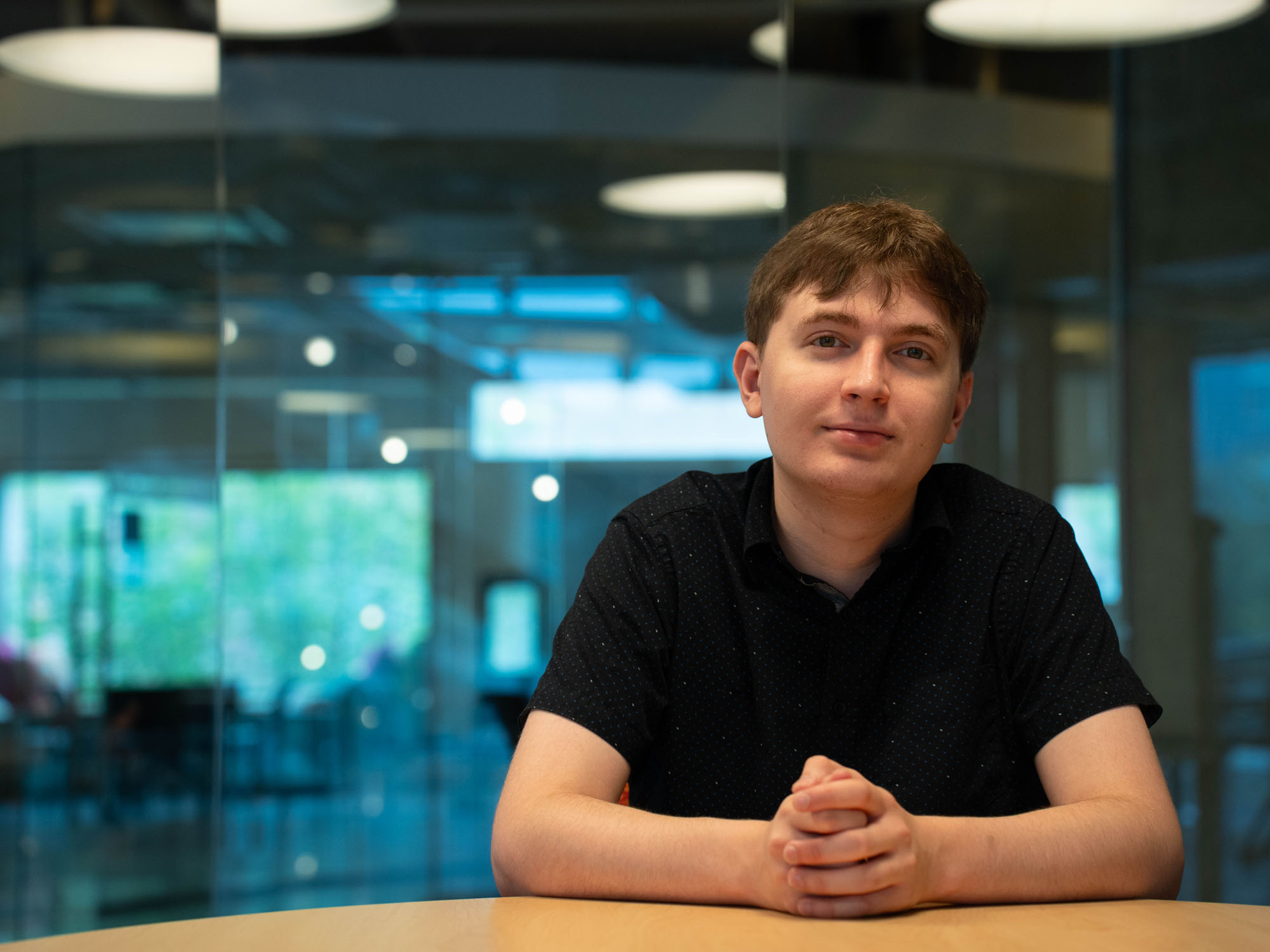
Nicholas Charalambous had a lofty task in front him. He had to stop people traversing through the center of campus to see if they would participate in what would turn out to be a tediously long survey.
The goal of this psychology class project wasn’t meant to gauge people’s opinions through the survey. Nicholas and his classmates were measuring whether people, once they realized the time commitment of the long survey, would take it anyway.
Though the experience led to some uncomfortable moments, the project stands out as one of the most valuable Nicholas has had as a student in the B.A. in Psychology program at The University of Baltimore.
“It taught me that, when I’m going into my career, there are certain obstacles that I’m going to have to be prepared for that I hadn’t originally anticipated,” he said.
Nicholas has also had a chance to conduct research to support one of his favorite professors, Dr. Sally Farley. In the spring semester of his sophomore year, he was part of her research team that analyzed how laughter frequency differs by gender.
These opportunities in research work are particularly valuable for Nicholas’ future.
After earning his bachelor’s degree, Nicholas wants to earn a master’s degree and a doctorate in his chosen field. He’s interested in committing his life to research and making an impact through what he can discover.
“I like the idea of contributing to a broader body of information regarding psychology,” he said.
Nicholas chose UBalt for a myriad of reasons: his dad is an alum, it’s close to home and it’s affordable. Along the way, he’s found a lot to love about his University.
“I just think that it’s a great school. I’ve gone here a while, and I’ve been inspired by so many of the other students who go here. It’s just such a unique place compared to other campuses, because it has such a diverse student body with people who have different backgrounds and stories.”
Nicholas has gotten to know many students as both a tutor in the Writing Center at Robert L. Bogomolny Library and as president of UBalt’s College Debate and Discourse Alliance.
Joining the Writing Center wasn’t something Nicholas planned. He went to the center during his first year seeking guidance on his own writing. In return, he not only found support, but also an invitation to join the staff and help other students find their voices.
“We enable students to be more confident in their writing, and give them the tools to improve,” he said, adding that the lessons in confidence work both ways. “It helps me, I feel, be more confident in my own ability as a writer, and I just really like to work with students and help them through their writing.”
The debate and discourse alliance puts Nicholas in charge of another way he can help students at UBalt find their voices. Through debates, students are encouraged to engage in discourse and share their perspectives without interruptions or conflict.
Nicholas has gained a lot from his participation in the debates—lessons that will serve him long beyond his time at UBalt.
“Witnessing debate has helped me gain a fuller understanding about how people think, especially relating to emotionally charged issues,” he said.
Meaningful scrutiny can give way to self-reflection in a way politicized debate may not, he said.
“I think coming to terms with the fact that we’re all capable of these kinds of shortcomings is one of the most effective ways to humanize,” he said. “Irrational behavior is something that I’d like to focus on in my psych research because I think that we need to put in the effort to understand it to truly address it, but in a way, we’re already kind of accomplishing that with the debate club.”

